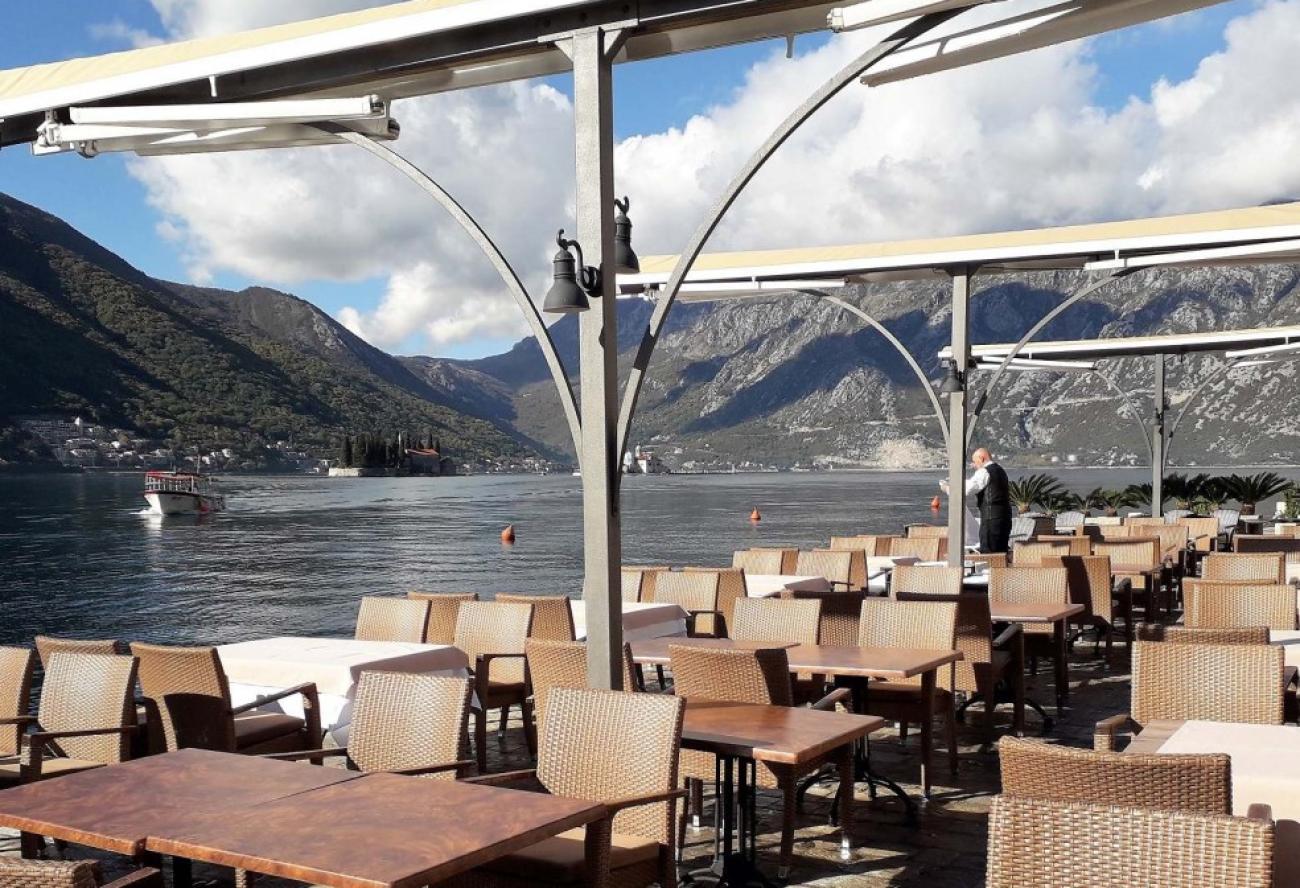Montenegro looks to Austria to develop recipe for food, agriculture and tourism

Montenegrin Government delegation learned how Austria links traditional speciality foods with rural tourism – a concept that can be transferred to Montenegro.
Montenegro is looking to strengthen the links between agriculture, food and tourism, uniting its mesmerising coastline and spectacular mountains with its traditional foods – ranging from speciality cheeses and cured hams to bitter greens and crisp wines.
As part of this agritourism push, at the end of June a Montenegrin delegation of government officials and producers travelled to Austria to learn from the country’s exemplary model of sustainable management of mountainous areas.
As well as offering insight into Austrian activities, the study tour – organized by the European Bank for Reconstruction and Development (EBRD), the Food and Agriculture Organization of the United Nations (FAO) and the Austrian Ministry of Sustainability and Tourism – was a unique opportunity for Montenegrin officials and farmers to deepen their understanding of public and private perspectives of tourism management.
Seeing is learning
The delegation learned how Austria links traditional speciality foods with rural tourism – a concept that can be transferred to Montenegro, a county in which agriculture and tourism play key roles in the national economy, contributing almost 8 percent and 22 percent, respectively.
By better connecting agriculture and tourism – by integrating restaurants and accommodation into farms, for instance – the incomes of small-scale farmers can be improved and more jobs created.
Danka Sekularac, a Montenegrin cheese producer who offers accommodation on her farm in Northern Montenegro’s highlands, says, “More and more tourists are looking for locally-produced food and also eco-friendly holidays. By bringing these together we have a great opportunity to develop new businesses in rural areas and at the same time protect our countryside and our culinary heritage.”
During a national park visit the group discussed their Austrian counterparts’ approach to balancing food production and preserving natural resources through their rural tourism strategy.
The delegation also visited Nockfleisch, a meat-processing cooperative, to better understand the standards required for European Union accession.
Montenegro has already taken steps to improve hygiene in the country’s meat sector through guidelines that help producers comply with the country’s new food hygiene requirements.
Bridging agriculture and tourism
The Montenegrin officials and producers held informal discussions in Austria on the preparation of their own national tourism strategy, and these were invaluable for both parties in understanding the constraints faced by rural entrepreneurs.
“Having met with private producers and public officials, the group saw how a tourism strategy develops from both sides,” said Emilie Vandecandelaere, FAO agribusiness officer. “This will help them in applying the final touches to a plan that will promote and preserve their gastronomy, culture and natural resources.”
The opportunity of agritourism
In a meeting with the Chamber of Agriculture the delegation learned of the popularity of farm stay experiences in Austria. The Austrian officials were clear that an enabling environment is crucial for producers or processors to diversify into agritourism and cited reducing bureaucracy at the municipal level as key.
According to Nemanja Grgic, Principal Manager, Agribusiness Advisory at the EBRD, “Some of the techniques and practices the Montenegrin delegation were exposed to will certainly give the producers a greater opportunity to diversify and become more efficient in linking gastronomy and tourism. Such links contribute to the competitiveness of local areas, open new markets and provide a platform for local economic development.”
Next
An EBRD-FAO pilot programme is already encouraging the Montenegrin hotel, restaurant and catering (HORECA) sector to source traditional high-quality food products from the country’s small-scale producers. These include origin-linked products such as Crnogorska Goveđa pršuta – a traditional dried beef, the focus of another FAO project in Montenegro.
Following on from this, in November a national workshop will take place in Podgorica to focus on improving market linkages among traditional food producers and the HORECA sector and building synergies with existing EBRD-FAO initiatives.
And sandwiched in between, in September a delegation of producers from Montenegro will showcase their products at Slow Food’s Terra Madre Salone del Gusto in Turin, Italy.



